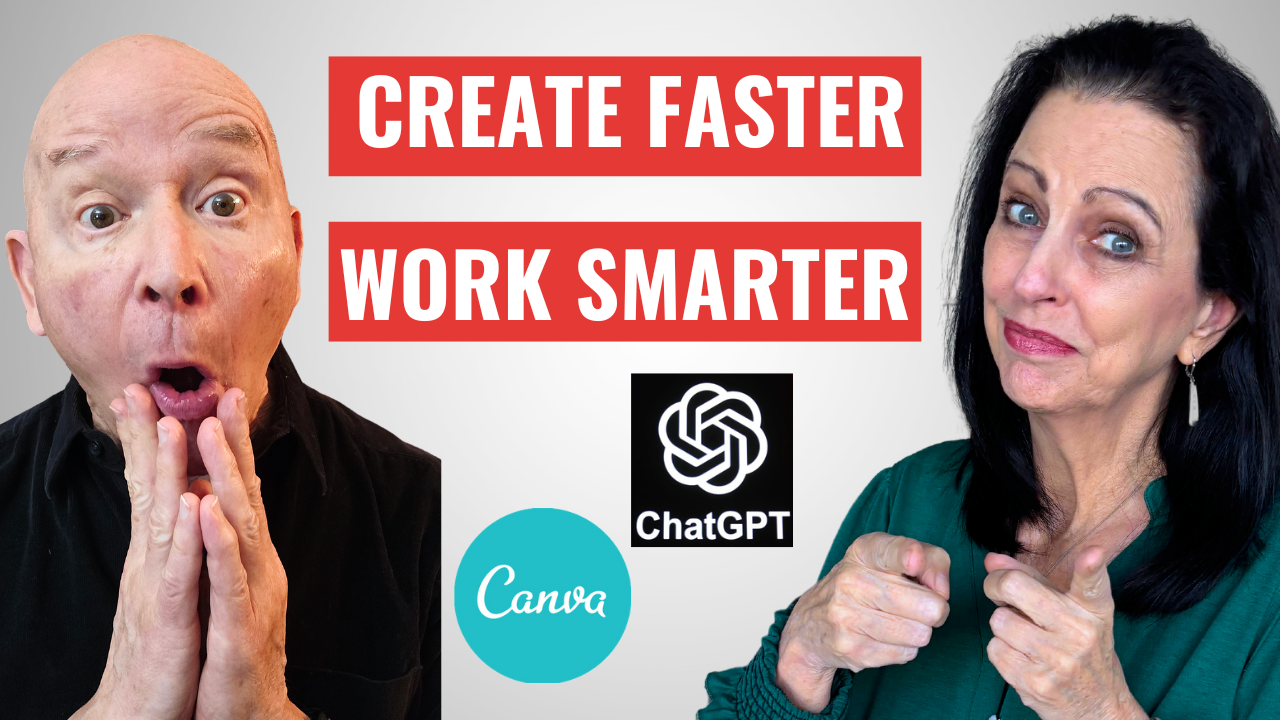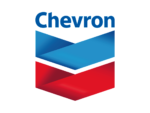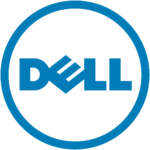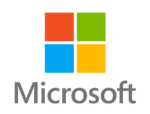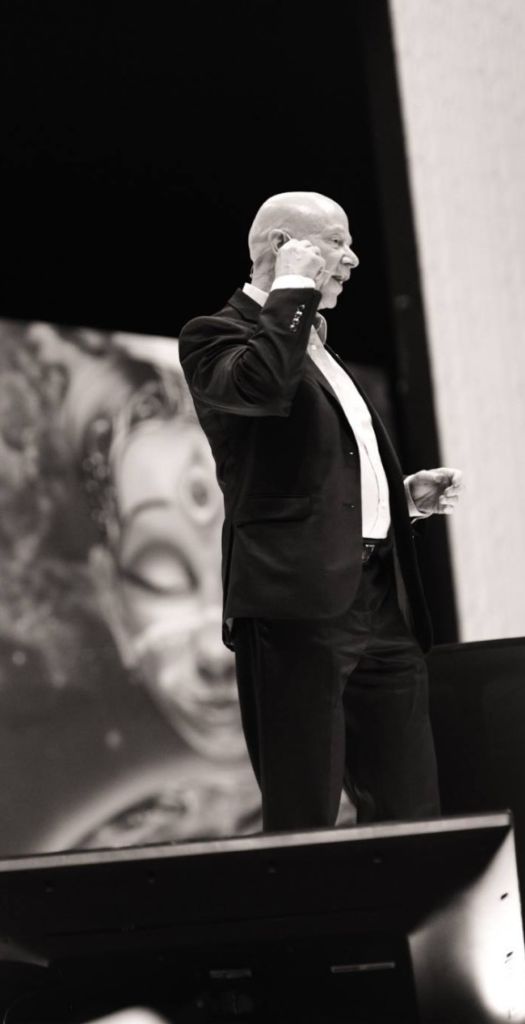Join us as we dive deep into the powerful practice of content repurposing.
In this episode, we’ll explore strategies to maximize your content’s reach, leveraging tools like Castmagic, Canva, and more to automate and streamline your workflow. Learn how quotes, graphics, podcasts, and text-based content can be utilized efficiently to save you time and expand your audience.
Whether you’re a seasoned creator or just starting out, we’ve got practical tips and insightful discussions to help you get the most out of every piece of content you produce. Grab your note-taking device and get ready to transform your content creation process!
First, here’s a gift for you to better understand AI and build sales –
Recommended AI tools for business growth.
http://AItools4biz.com
Here’s Your Video Link:
https://youtu.be/b6ThpM6-CMc
Listen to this & other episodes on our podcast
https://bit.ly/sre_podcast
Here are some timestamps that can be useful for you:
[00:00:44] – Overcoming Content Overwhelm:
Terry talks about overcoming the mentality of “one and done” and repurposing content using automation tools.
[00:01:19] – Importance of Leverage:
Gina emphasizes the importance of getting leverage out of your content to increase visibility and effectiveness.
[00:02:27] – Long Form Video:
Terry explains the concept of long-form video content and introduces tools like Cast Magic for managing transcripts and highlights.
[00:03:57] – Creating Quotes and Graphics with Canva:
Gina shares how Canva’s Bulk Create tool can be used to create visually appealing graphics from video transcripts.
[00:07:10] – Text-Based Content:
Gina discusses the use of transcripts to create various forms of text-based content, including LinkedIn articles and Substack newsletters.
[00:11:44] – Benefits of YouTube Posts:
Gina explains how YouTube’s community posts can attract new subscribers and increase engagement, even without video content.
[00:13:02] – Importance of Systems and Checklists:
Gina and Terry highlight the importance of having systems and checklists in place to ensure consistent and effective content repurposing.
Here’s your Spanish language summary of this episode:
¡Claro! Aquí tienes un resumen de este episodio en español:
Nombre del podcast: Stark Raving Entrepreneurs
Título del episodio: Repurpose-Terry y Gina 10 de enero de 2025
Hosts: Terry Brock y Gina Carr
Resumen del episodio:
En este episodio, Terry Brock y Gina Carr discuten estrategias y herramientas para convertir y reutilizar contenido de manera eficiente, evitando la sensación de estar abrumado por tener que crear nuevo material constantemente. Terry destaca la importancia de aprovechar el contenido de formato largo, como entrevistas o videos informativos, para crear múltiples piezas de contenido de formato corto, como reels de Instagram o publicaciones en TikTok. Herramientas clave mencionadas incluyen Cast Magic, Taja y Alfana.
Gina enfatiza la importancia de la visibilidad y cómo el uso de herramientas como Canva y su función “Bulk Create” pueden facilitar la creación de gráficos atractivos que llamen la atención en redes sociales. También abordan cómo convertir contenidos en podcasts, resaltando herramientas como Camtasia y Audacity. Además, Gina sugiere aprovechar los transcritos de video para generar contenido textual, como artículos de blog o newsletters en LinkedIn, usando herramientas como Otter AI y Substack.
Ambos destacan la importancia de tener un sistema o checklist para gestionar el proceso de creación de contenido de manera ordenada y eficiente, sugiriendo el uso de hojas de cálculo de Google por su simplicidad. Finalmente, subrayan el valor de utilizar asistentes virtuales para manejar tareas adicionales mientras se usa la automatización de AI para tareas repetitivas de contenido.
Here’s the transcript of this episode for your convenience:
Terry Brock [00:00:00]:
You ever feel swamped and overwhelmed by working with YouTube, your podcast, the blogging, all that you’re doing? Do you feel like that hamster that’s on the treadmill trying to crank out content? Well, if you feel like that hamster with the right tools, the right rules and techniques, we’re gonna show you what you can do to overcome that. Get over that one and done mentality, and now take something and repurpose it into many different areas. This is gonna give you a lot of capability as a content creator. Hi. I’m Terry Brock, and we talk about this at our start raving entrepreneurs. And in this video, we’re gonna show you how you can do that with some tools. This is where you wanna get your pen and paper ready to go or your note taking device of choice. Gonna show you what you can do, how to make that happenx with the white systems you have.
Terry Brock [00:00:44]:
You’re gonna put those in place and it’s gonna help you in a real big way. And the good news, you don’t have to do it all manually. There’s ways you can use automation. We’re gonna show you the specific tools we’re using right now to make this happy. And and not only happy, but also to make it happen. I’m gonna show you how you can put all this together, making it work just the way that it should. And, yeah, we’ll make it happy too because I’ve got Gina Carr joining me right now, my co host and partner in this. Gina, content creation and repurposing is really big.
Terry Brock [00:01:13]:
What are your thoughts on it, and why should we even think about content creation and repurposing?
Gina Carr [00:01:19]:
Well, it’s so important that if you’re going to the time, money, and effort to create something, that you get as much leverage out of it as possible. It’s a concept that was drilled into me in my engineering days at Georgia Tech. You gotta have leverage. Right? So leverage is really important. This is something, this creates a lot more visibility so that people are gonna know who you serve and the problem that you solve. It’s something we talk about all the time in Start Creating Entrepreneurs. It’s, my one of my favorite pillars of our program, and so visibility is really core.
Terry Brock [00:01:54]:
So let’s dive right into it. One of the best ways you can get started with this is with long form video. Now sometimes you might wonder, what is that? I know for me, I was wondering, what does that mean a long form? Well, with YouTube, you can create 60 seconds. They often call these shorts, and they do them in a vertical format. Under 60 seconds has worked now, they’ve extended that to 3 minutes, so you can use that. Long form bin comes into anything over 3 minutes for sure, and you can use that. So let’s give an example. That might be an interview you have with someone, or it could be you talking about a particular important topic yourself.
Terry Brock [00:02:27]:
Talking about that, with the right tools, you can take that and move forward. Get your pen and paper out. We’re gonna give you some tools to see. We’ve got some other videos on the channel that you can look at for those. One tool that is very good, we use a lot is called cast magic. Cast magic gives you the ability to do so. I think it’s really cool where we can look at your transcript. That’s a good way to do it.
Terry Brock [00:02:47]:
Start with your transcript. You can highlight from here down to there. Just highlighting it, and then you click clone the word captions, and it will do it. Now we’ve got a whole video we’re gonna show you about at the end of this video, so you can watch that and see in step by step detail how to make that happen. Another tool that we love is called Taja, t a j a, Taja. And it gives you the ability to do that and it finds clips for you. Pretty cool. You can run out and do that.
Terry Brock [00:03:14]:
Another one, Alfana. So we’re gonna have these listed for you in the description. Alfana, I really like because it does that as well. Highlighting a section, and then you go out and get what you want. Then you could take these and turn them into, content with your Instagram reels, Use it for TikTok. Use it for Facebook, for LinkedIn. That’s one that we use a lot, and it gives you a lot of capability for that. So these are tools you wanna combine, start working with them, and see how they work, and we’re gonna have some more video details for you on that.
Terry Brock [00:03:45]:
Now another way that you can do this is with quotes and graphics. I love the way this works. Gina, you have done some work with that. Tell us a little bit about first the benefits of that and then specifics that we need to know.
Gina Carr [00:03:57]:
Sure. One of my favorite tools for repurposing is Canva. I love creating graphics in Canva and sharing them. One of my one of the most powerful aspects is a tool called Bulk Create in Canva. And it’s kind of like the old days of doing a mail merge when you would write a letter and you wanna insert certain different people’s names in a mail merge. It’s now you can create graphics and you can insert text. So let’s say you’ve created that video, you’ve pulled the transcript, you’ve pulled some really good clips using a tool like Cast Magic. Now you can bulk create create in bulk those quotes into graphics that already have your your colors, some images that you can add very easily, and it’s just a really powerful tool.
Gina Carr [00:04:49]:
So they’re very visually appealing, which as we know, makes you stand out on social media.
Terry Brock [00:04:56]:
Yeah. Very much so. You get a chance to stand out and using those graphics just the right way can really help. Now graphics are one way you can do it. Another way that you can do it is with a podcast. A podcast gives you the ability to connect with people 1 on 1. I have a background in radio. I’ve been in radio.
Terry Brock [00:05:11]:
I had a grad degree with radio, TV, and newspaper, and we talked about how the importance of the intimacy comes in there. The listeners feel like, wow, I know this person. A podcast gives you that magic, and you can do that very well today. We encourage you to look into that as a good possibility for you to get your message out to the world. Some tools that can work really well with that would be using for instance, Camtasia. I use that for my video editing, but then, when I’m done with the video editing, I just click a little couple of buttons, and it gives me the ability to send it to an audio file, And it it makes it an m 4 a file. I take that and then put that into Libsyn, which is a tool that I use for sending out my podcast elsewhere. Our podcast gets out that way very nicely.
Terry Brock [00:05:58]:
And if there’s, area that needs a little bit of touch up, one of the best tools out there is Audacity. I’ve been using it for years and love, love, love Audacity. It’s very inexpensive. They give you 2 hours free to get started. This is wonderful. I used a little bit extra there and I put in some extra, I think about 5 or 6 hours for, like, $11 Incredibly wonderful prices, and they’re not sponsoring this or anything like that. I’m just a user that loves it, and we encourage you to take a look at what you can do with that. But think about the benefits of repurposing your video, pull out the audio and use that.
Terry Brock [00:06:32]:
One of the things you gotta be careful of, and we bump into this a lot, when we share tools on the screen and say, here’s how you do click on that button right there, and then that button there, obviously, doesn’t come out as well in a podcast. So I would encourage you to think about using content that might be audio only, and you can do that very easily with your smartphone, put it in there, and make sure that it looks really good. Now, in addition to that, what you can do is you can have a text based content as well. And that takes a variety of forms. Gina, you have done a lot with that. What are some forms of text based content? And what are kind of the principles we need to be aware of when we’re looking at those?
Gina Carr [00:07:10]:
Yes. We what you wanna do is you want to take the transcript from your video, and you can use tools like Otter AI, Camtasia, or Yoodly, or a number of other tools to grab that transcript. And then you can use that transcript in a number of ways. You can create an article that would use on your blog or LinkedIn newsletter article. We love the LinkedIn newsletter articles because they go into your subscriber’s email box. That’s really powerful. You can use a tool like Substack. Substack is very popular.
Gina Carr [00:07:46]:
A lot of people are doing really well with it. You can monetize on Substack directly. So that’s a great way to get your text based content out into the world. These then take smaller threads, take smaller chunks, and turn it into threads on x. Posts on Facebook, posts on YouTube. Actually, posts on YouTube. I didn’t mean to say that. There is a way that you can use YouTube as what’s called post, and it comes out on your community tab.
Gina Carr [00:08:19]:
And people who are mobile users of YouTube like I am, I see a lot of people’s posts, and posts are text and or images. It’s not a video on YouTube, although you can link to a video. So this is this is really powerful. And I just say, hey. Channel your intercept, Gordon. Turn these blogs blog posts into books. And if he can do it, why can’t you?
Terry Brock [00:08:46]:
Yeah. Georgina, you raise a really good point there because you can write blogs, put a lot of content in there. It’s already written. So what you do is you take just a portion of that, touch it up a little bit, run it through chat GPT, run it through perplexity or Claude, and then they can clean it up. Check the grammar, you can check the spelling, and it can give you some additional ideas. But here’s an important point, don’t let it be the writer that you just copy and paste. Do not do that. I like to say you wanna copy, paste and customize.
Terry Brock [00:09:14]:
That’s the key. You want to copy, then you paste that in there, but you don’t stop there. You customize it using your voice, customize it for solving a particular problem that your audience has, and be able to put those together. I think that is really a better way to do it, and you get much more traction to build your business with that and doing a lot of different capabilities with it, start making a lot of different inroads into audiences, solving their problems and helping them in many different areas. And, you know, one thing I wanna talk with you about, together here, because I know you’ve done a lot of work with us also, is looking at carousels. You can create carousels with this with, Instagram, with LinkedIn, etcetera. Tell me a little bit, Gina, about the carousels you’ve heard of, you’ve worked with, and how you see those can be beneficial.
Gina Carr [00:10:04]:
Well, people are very inspired by and in tune with visual posts. So when you create, an image that catches attention, well, they might want to know more. So you can put you can include I think on LinkedIn, the minimum is 3 images and up to 10, which is fantastic. So you can put some words on a particular image, and then you put words on a related image and words on another related image. And people just scroll through them very quickly, and they get the essence of whatever it is that you’re talking about. You can have a call to action on these images, but it’s more interesting and more people are more engaged when they’re scrolling through your carousels than just looking at a single image. So I really like this. You can do this on Instagram, Facebook, LinkedIn, maybe some other places.
Gina Carr [00:10:58]:
Oh, YouTube. Yes. You can also do this on your post on YouTube. So I I think it’s really terrific. I know you create those images in Canva.
Terry Brock [00:11:07]:
Yeah. The Canva works beautifully. We love I love Canva because I am not a graphics person, but Canva designs the stuff for me. So I can say, hey. I like that one right there, the template. I just copy and paste. That’s where it’s okay on Canva. Put that in there and change it in there.
Terry Brock [00:11:21]:
So I like that. Wanna go back to the curacao. One of the things you mentioned, Gina, was YouTube. YouTube, that was kind of interesting when it came out and I think they’ve done a great job with it. Or they can have a text, a text image kinda like you’d see on Facebook or elsewhere, but do it on YouTube. That is something we’ve done a little bit of, and I wanna start doing a lot more. What do you see some of the possibilities on that on building your community on that, Gina?
Gina Carr [00:11:44]:
Well, part of what’s wonderful about it is as people, you YouTube will show these posts to people who are not yet subscribed to your channel, And it will when it shows it, people can subscribe to your channel without even going to your video channel. So they they may see your post and like it and also subscribe right there to your actual YouTube channel, again, without ever going to your YouTube channel, without ever watching one of your videos. A lot of people will see your just the post that you’ve done, either text or images or a carousel, and say, oh, I like that. I wanna stay in tune. I wanna keep in touch with this person and see what they put out next because that was intriguing and valuable to me. And, so I I’ve done that with several creators, and people are doing it with us, and I think it’s really powerful.
Terry Brock [00:12:37]:
Absolutely. I think all those techniques and all those tools can be very, very helpful. You wanna look at it. But the most important, we say the best to last. Most important is getting some checklist, your systems in order, the processes that you’re gonna do. Gina, you’re a real industrial engineer. Tell us a little bit about the importance of systems and why you would put those together and what we need to think about when we put them in place.
Gina Carr [00:13:02]:
Well, it it’s much like baking a cake. If you’re gonna bake a cake or I like to make pudding a lot, avocado chocolate avocado pudding is my favorite. But if I was gonna make my pudding, I need a recipe. I I can freelance, free form it, but I’m gonna be much more successful and not forget something important if I have a checklist or a recipe. So think about what you’re doing, what you wanna do every single time so that you don’t have a mistake or an error, and so that you really get the coverage and the visibility that you want to get. So we use just a simple Google spreadsheet checklist. That has worked really well for us, and what we’ll do is we’ll put, the actual post that we’re using or the video that started it all, then we’ll put a link to the transcript. We’ll put a link to the 2 the x post that were created from it and then a link to the Facebook post and, just all the different things that we’re doing that were created from that single initial video, in this case, the longer form video.
Gina Carr [00:14:09]:
This is a great thing that we’re doing for ourselves as well as the clients that we’re helping, and this is, just a a great way to do it. There are other tools that are more complex that provide, like Trello, Asana, other other tools that that can help you with this, create some sort of a pipeline. But I really like Yes. Google Spreadsheets for the simplicity and the the easy ease of visibility of how do we do on this.
Terry Brock [00:14:36]:
So there’s a lot to be said for simplicity and putting them together. So what we wanna do is give you a lot of tools that are available. These tools can really help you. And by using the tools the right way, you don’t have to be that hamster on the treadmill trying to crank out your content. You can have a system that does it for you. Make sure that you’re putting in quality content to build your business. Because that’s what it’s all about. You’re creating the content so that people know about you, they like you, and they trust you.
Terry Brock [00:15:06]:
Know, like, and trust. We’ve seen that so many times before, and it’s something that you can do with these tools if you do it right. Gina, any final words before we move along here and let people go back and start making their content?
Gina Carr [00:15:20]:
Well, you know, a lot of smart entrepreneurs use VAs or assistants to do this sort of work and and to help with it, and you can still do that. It’s just that now with AI and the tools being so sophisticated, you can do a lot of these things yourself very easily even without giving it to a VA or hiring someone to help you with it. But you don’t have to fire if you have already have a VA. You already have a a person who helps you with social media or your visibility marketing. Perhaps you can give them other tasks that they could do. They could spend their time doing, nurturing of your community, communicating with your community members, improving your onboarding process, or other creating better workbooks for the next workshop that you’re doing. A lot of things that your VA could do that in the past, they would have spent a lot of time, doing these things that we’ve just mentioned that now we can do with tools, amazing tools.
Terry Brock [00:16:16]:
Yeah. These tools are great. So we encourage you to do that, and let us know what tools you are using in the comments below. However, you’re getting this connection right here with us, we’d love to hear from you. What tool are you using? What are you recommending? And by the way, yes, those of you who have our vendors and have a tool, we’d love to hear from you. Let us know who’s this tool is, what you have, and the benefits it has, how it sells it. We wanna hear from you. So we are going to look forward to seeing your content out there, be able to do even more.
Terry Brock [00:16:45]:
And thank you very much for joining us here at Star Craving Entrepreneurs. Be sure and join us as we have some other videos for you about programs we were talking about. Cast magic and Taja right here, so you can click on those on YouTube and be able to get the information on that. I’m Terry Brock and for Gina Carr, thank you very much for joining us today.

